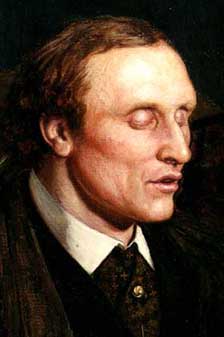Henry Fawcett 1833 – 1884
December 06, 2008
 Henry Fawcett
1833 – 1884 was a blind
English statesman and economist. Fawcett was a staunch suffragist
and
married to Millicent
Garrett.
Henry Fawcett
1833 – 1884 was a blind
English statesman and economist. Fawcett was a staunch suffragist
and
married to Millicent
Garrett.
Henry Fawcett was a Member of Parliament under William Gladstone, and he was a friend of Barbara Leigh Smith Bodichon, Charles Darwin and John Stuart Mill.
The Fawcett’s knew many homeopaths and homeopathic supporters, including Octavia Margaret Sophia Lewin, and the circle around John Chapman’s Westminster Review, including Thomas Henry Huxley, Theodore Stanton (the son of Elizabeth Cady Stanton) and many others.
Henry Fawcett was born in Salisbury, and educated at the University of Cambridge, where he became Fellow of Trinity Hall. A statue of him stands in Salisbury Market Square.
Soon afterwards, he reportedly attended the 1860 Oxford evolution debate, during which he was asked whether he thought the bishop had actually read the Origin of Species. “Oh no, I would swear he has never read a word of it”, Fawcett reportedly replied loudly. Samuel Wilberforce swung round to him scowling, ready to recriminate, but stepped back and bit his tongue on noting that the protagonist was the blind economist.
In 1863 Fawcett published his Manual of Political Economy, becoming in the same year Professor of Political Economy in Cambridge.
After repeated defeats he was elected member of Parliament (MP) for Brighton in 1865. He campaigned for women’s suffrage, and through this he met Elizabeth Garrett, to whom he proposed in 1865. She rejected the proposal to concentrate on becoming a doctor at a time when women doctors were extremely rare. Fawcett later married her younger sister Millicent Garrett in 1867.
In 1880 he was appointed Postmaster General. He introduced many innovations, including parcel post, postal orders, and licensing changes to permit payphones and trunk lines.
His career was, however, cut short by his premature death from Diphtheria and pleurisy, but not before he had made himself a recognised authority on economics, his works on which include The Economic Position of the British Labourer (1871), Labour and Wages, etc.
He was elected Rector of Glasgow University, 1883